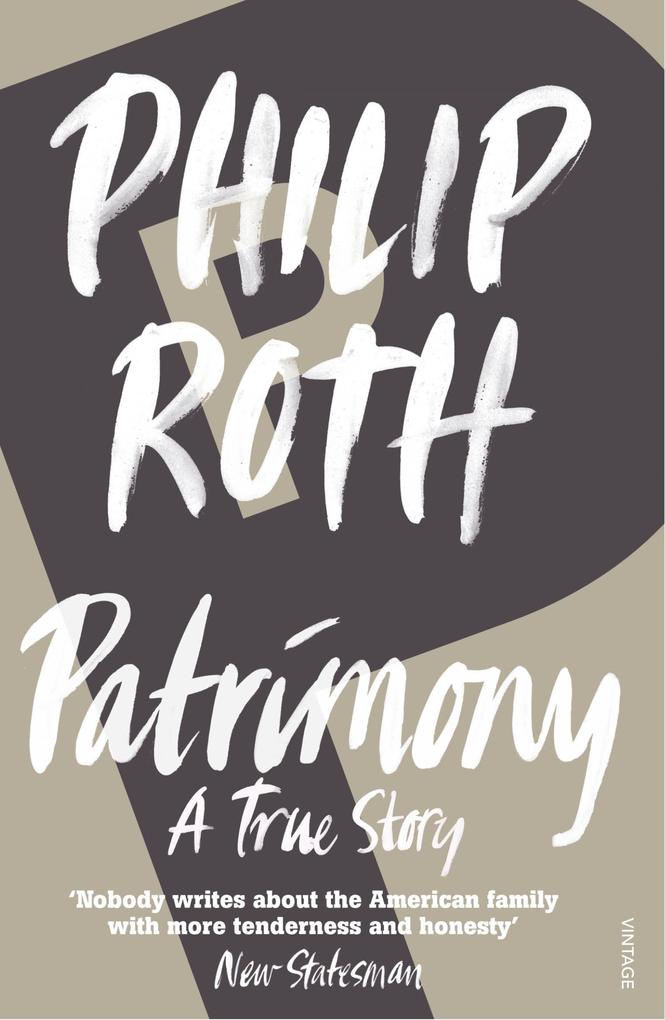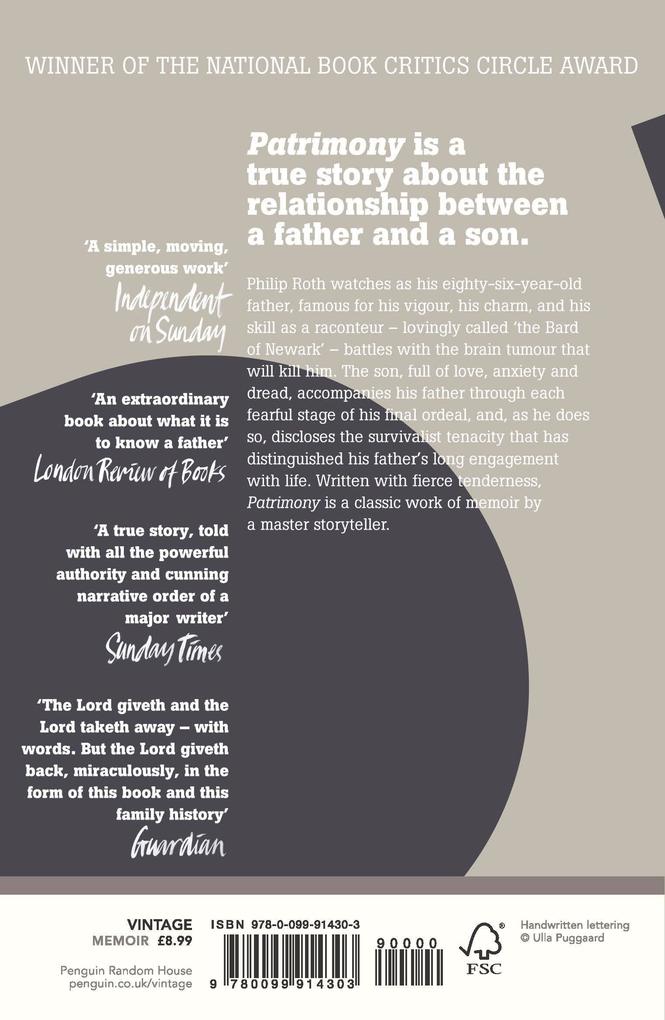
Zustellung: Di, 26.11. - Do, 28.11.
Sofort lieferbar
VersandkostenfreiBestellen & in Filiale abholen:
Reissued in electric new backlist style, Patrimony is a true story about the relationship between a father and a son.
Patrimony is a true story about the relationship between a father and a son.
Philip Roth watches as his eight-six-year-old father, famous for his vigour, his charm and his skill as a raconteur - lovingly called 'the Bard of Newark' - battles with the brain tumour that will kill him. The son, full of love, anxiety and dread, accompanies his father through each fearful stage of his final ordeal, and, as he does so, discloses the survivalist tenacity that has distinguished his father's long engagement with life. Written with fierce tenderness, Patrimony is a classic work of memoir by a master storyteller.
Philip Roth watches as his eight-six-year-old father, famous for his vigour, his charm and his skill as a raconteur - lovingly called 'the Bard of Newark' - battles with the brain tumour that will kill him. The son, full of love, anxiety and dread, accompanies his father through each fearful stage of his final ordeal, and, as he does so, discloses the survivalist tenacity that has distinguished his father's long engagement with life. Written with fierce tenderness, Patrimony is a classic work of memoir by a master storyteller.
Produktdetails
Erscheinungsdatum
15. April 1992
Sprache
englisch
Seitenanzahl
170
Autor/Autorin
Philip Roth
Verlag/Hersteller
Originalsprache
englisch
Produktart
kartoniert
Gewicht
130 g
Größe (L/B/H)
198/128/16 mm
ISBN
9780099914303
Entdecken Sie mehr
Pressestimmen
Nobody writes about the American family with more tenderness and honesty New Statesman
Bewertungen
0 Bewertungen
Es wurden noch keine Bewertungen abgegeben. Schreiben Sie die erste Bewertung zu "Patrimony" und helfen Sie damit anderen bei der Kaufentscheidung.











